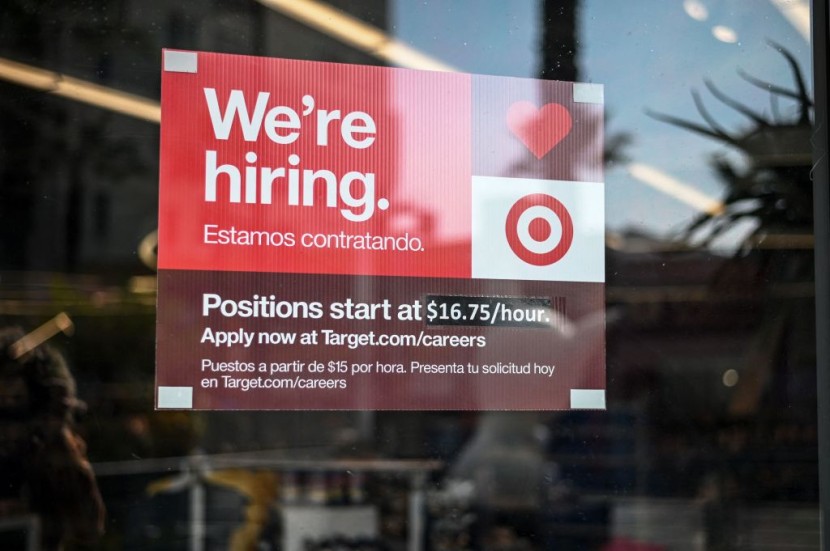
Target stated on Monday that it would increase the starting salary for some employees to up to $24 per hour. According to the Minneapolis-based company, the rise would affect hourly workers at the retailer's discount locations, supply chain facilities, and headquarters.
In 2020, Target's minimum salary was $15. This will stay in place, but Target has stated that some employees will be eligible for a greater starting salary based on the nature of their employment and the current competitive wages in their area.
Target Modifies Starting Salary of Staff
Target (TGT), which employs over 350,000 people and has over 1,900 stores in the United States, said the salary increases are part of a $300 million investment in its staff. Beginning in April, this investment will also involve extending access to healthcare coverage for hourly workers, CNN reported.
Hourly employees at Target who work a minimum of 25 hours per week will be able to join the company's medical plan under the plan. The former requirement of 30 hours per week has been reduced.
Target is also reducing the time it takes for qualified hourly employees to enroll in a Target medical plan. Employees will be able to access complete health care coverage three to nine months sooner, depending on their position. Employees will now be able to access their 401(k) accounts more quickly.
Starting pay at Target stores and distribution hubs in cities like New York, where competition for finding and hiring employees is toughest, could reach $24 per hour this year. According to NY Post, the increased starting salary range is part of a $300 million investment in the company's workforce this year, including expanded and faster access to health insurance for hourly workers.
When Target declared in 2017 that hourly pay would rise to $15 by 2020, it set a new standard for the retail sector. However, the US labor market dynamics have shifted as a result of the pandemic, with many firms experiencing acute labor shortages. Many of Target's competitors are now paying at least $15 per hour or more.
Target, which has around 1,900 stores and 350,000 employees in the United States, said that employee turnover is currently lower than it was before the pandemic. During the 2021 holiday season, the company stated it was able to meet its objective of recruiting 100,000 seasonal workers in its shops and 30,000 in its supply chain network across the country.
Read Also : US Gas Price Hike Prediction: Expert Warns Gas Increase to $4 Per Gallon Amid Russia-Ukraine Crisis
Stores Struggle To Find Employees, Prompting Salary Increase
Target, on the other hand, understood that it needed to take a more regional strategy to pay. It stated that it is currently doing research and refuses to identify the places that will receive the highest starting salary, as per Fox10.
Amazon's starting salary is $15 per hour, with an average starting compensation of $18 per hour for workers in transportation and fulfillment across the country. Walmart is still a slacker, having raised its minimum pay to $12 per hour last autumn, up from $11 in 2018. Walmart also increased hourly salaries by at least a dollar for over 565,000 retail employees.
Many shops have stated that they are having difficulty finding employees. According to a recent poll of more than 100 big retailers with annual revenues ranging from $500 million to more than $20 billion, 96 percent are having problems hiring personnel for their stores. According to a January poll done by global consulting company Korn Ferry, 88 percent of respondents indicated it was tough to locate distribution-center staff.
Wages have consistently risen as a result of the increased demand for labor, particularly among lower-income workers. Pay for the lowest one-quarter of workers increased 5.8% in January compared to a year ago, according to the Federal Reserve Bank of Atlanta. That's more than double the gains for the top quartile of earners.
Retail workers, excluding managers, earned $19.24 an hour on average in January, up 7.1 percent from a year earlier. This is a quicker rate than before the pandemic. Compared to the previous year, retail workers' wages increased by 4.2 percent in January 2020. It only increased by 1.7 percent from the previous year in January 2017.
However, most of those gains have been eaten away by inflation, with consumer prices climbing 7.5 percent in the last year, the highest increase in four decades. Despite this, inflation spiked after a year of modest price increases. According to Dallas Fed data, wage growth has been robust enough to balance inflation over the previous two years, leaving workers with somewhat greater inflation-adjusted compensation on average.
Related Article: Discount Chain Distribution Plant Affected by Severe Rodent Infestation Contaminating Products Sold, FDA Reports








